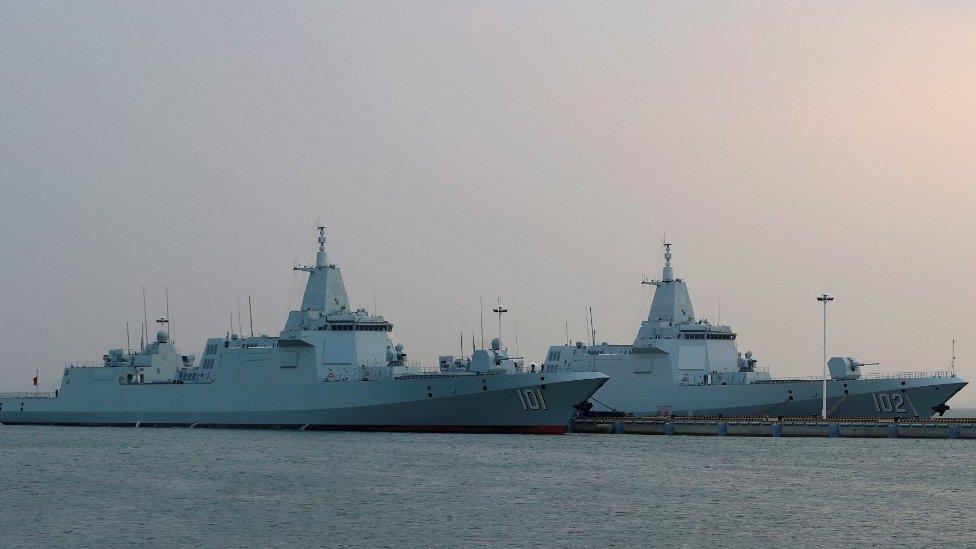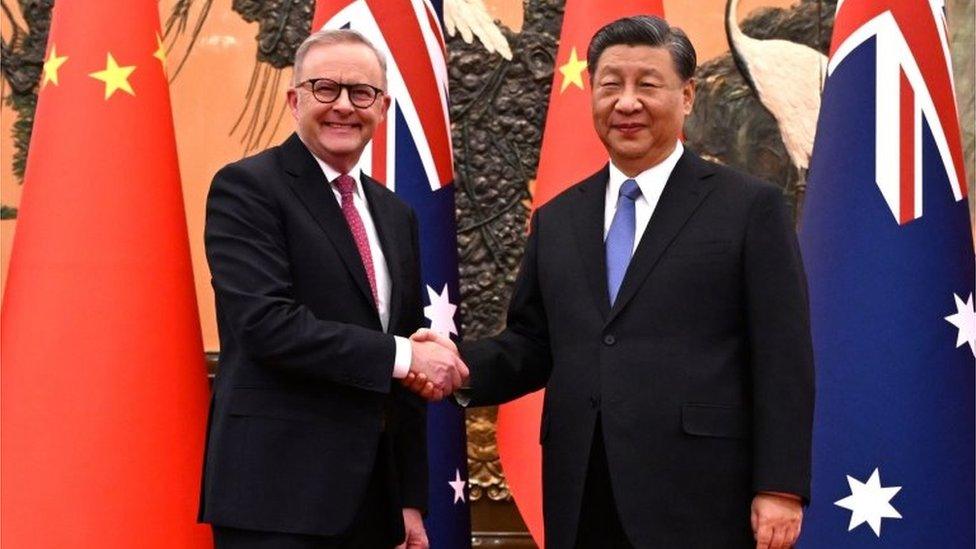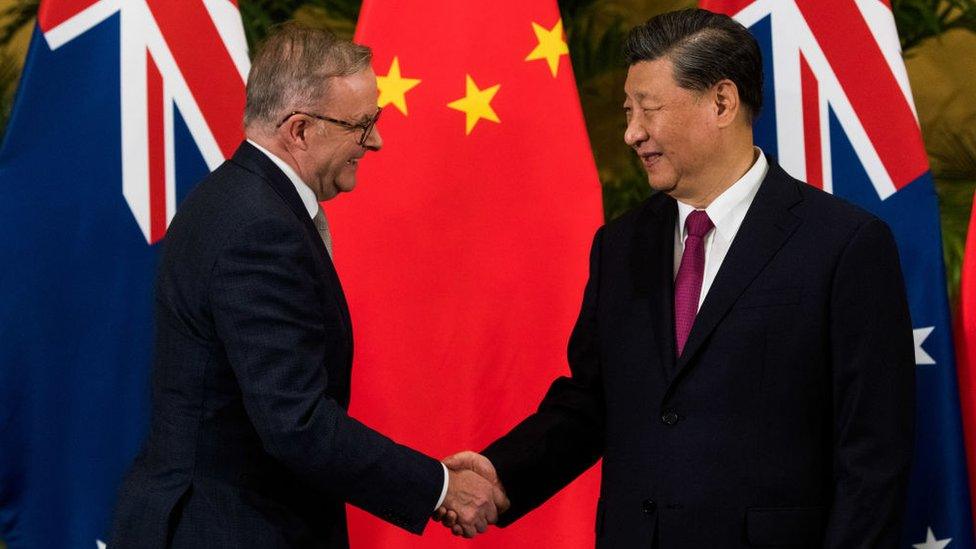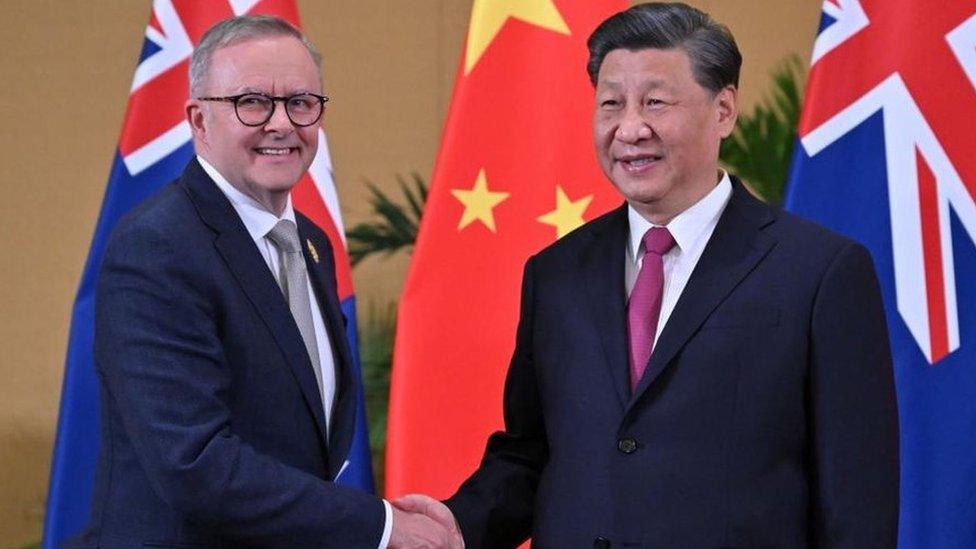China navy used sonar pulses against divers, Australia says
- Published

China has been building up its military in recent years (file photo)
Australia has accused China's navy of using sonar pulses in an incident in international waters that resulted in Australian divers suffering injuries.
The Australian defence minister said a Chinese warship had resorted to "unsafe and unprofessional" actions during the encounter off Japan earlier this week.
The warship approached an Australian frigate as divers were clearing fishing nets from its propellers, he said.
The Chinese ship then emitted dangerous sonar pulses, the minister added.
This had posed "a risk to the safety of the Australian divers, who were forced to exit the water", Defence Minister Richard Marles said in a statement on Saturday.
The divers suffered minor injuries that were likely caused by the sonar, Mr Marles said.
"Australia expects all countries, including China, to operate their militaries in a professional and safe manner," he said.
The Australian long-range frigate HMAS Toowoomba had communicated its intention to conduct diving operations on normal maritime channels, and using internationally recognised signals, the statement said.
There has been no comment from the Chinese government.
According to the Diving Medical Advisory Committee, a London-based body, high levels of underwater sound can cause "dizziness, hearing damage or other injuries", external to divers.
The reported incident occurred on Tuesday in Japan's Exclusive Economic Zone. HMAS Toowoomba was conducting operations in support of UN sanctions enforcement, Mr Marles said, without giving details.
Earlier this month Australian Prime Minister Anthony Albanese made a breakthrough trip to China, and hailed "significant progress" in relations between the Pacific powers.
However tensions remain, notably over security. Australian has expressed concern over China's growing assertiveness in the Asia-Pacific region.
Canberra has recently deepened military ties with the US and overhauled its defence posture in a bid to counter potential threats from China.

Mr Albanese (left) - seen with Xi in the Great Hall of the People - was the first Australian leader to visit China since 2016
- Published3 November 2023

- Published2 November 2023
